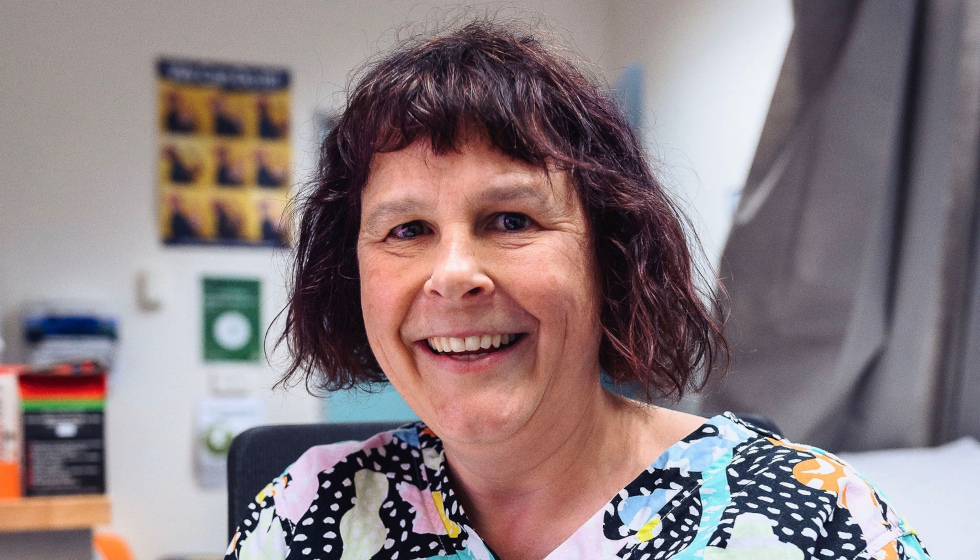The Vagenius’ Revolutionising Pelvic Health Education
by Stephanie Williams

A newly launched Tasmanian online health training program created by pelvic physiotherapist, Rachel Andrew and education specialist, Colette Mckiernan is revolutionising the way GP’s learn more about pelvic health.
What is pelvic health physiotherapy and what can it help with? Well it’s definitely more than just kegels! Pelvic floor physios are normal physios with extra training. I first worked in rehabilitation with people with brain injuries, strokes, and other neurological conditions. I especially loved treating pain and empowering women to self-treat and recover. That led me to my Clinical Masters in Pelvic Health.
Pelvic health physios treat the muscles, nerves and organs of the pelvis. From prolapse to incontinence and pelvic pain, we treat women and men throughout their life stages. I became a pelvic physio because I realised that small things can become a big deal! Women dropping out of sports because of leaking urine, or not gardening due to a prolapse, or painful periods stopping girls going to school.
Everything is linked to the pelvic floor but we know very little about this area of our bodies. If you have a sprained ankle, you know what to do, and you feel better if you can talk about it. Lack of knowledge, taboo and shame all make these issues worse. No-one goes to work and says ‘my vulva is sore’. My mission is for women to talk about these issues more. To have a conversation.
What inspired you to create Vagenius Training?
Women’s health has some shocking stats. One in four women have pain with sex. One in three leak urine after having a baby and one in 10 have bowel incontinence. Seven out of 10 talk about ‘peeing themselves’ but don’t know they can fix it. They often think it’s normal and get on with it. It is common, but it is not normal. 40-50% of women who have had a baby have a mild prolapse. It takes nine years on average to be diagnosed with endometriosis, yet about 14% of the female population have endometriosis. 56.7% of visits to a GP are for women’s health issues, and some women have to see multiple GPs to get on the right track.
That’s why we set up Vagenius. We know GPs are the key. As there is a chronic shortage of GPs in Tasmania, it can be a long wait. GPs are under the pump. When you do see your GP, we want it to be as effective as possible for you as a patient, and satisfying for your GP, as they help you on the road to recovery.
The online program was a result of visiting GP practices where I learnt what GPs wanted to know about pelvic physiotherapy – what we treat, and how we treat it. They were curious and had so many questions, and I learned a lot from them. I work at TasWomen with doctors and gynaecologists and we exchange so much knowledge between us. My partner, Colette Mckiernan, is an education and learning specialist and together we thought we could bring this deeper understanding of women’s health to Tasmania (and the world!!!).
Why is training GPs and health professionals in women’s pelvic health important?
Women’s health has been seriously neglected for decades, with most medical research being carried out only on men until 1995. Unfortunately, there is evidence that this has led to women’s health conditions being downplayed, undertreated or dismissed. For example, women can be told they have a “mild prolapse” and it might be physically mild, but really impacts negatively on women’s lives. Girls can be told heavy, painful periods are normal, and a certain part of our anatomy (clitoris) was only properly researched and started being included in anatomy textbooks in 2005!
GPs keep up with their learning by undertaking Continuing Professional Development (CPD). The Royal Australian College of General Practitioners (RACGP) has an extensive curriculum. GPs cover this during their registration, and then continuously review areas of it and new learning, throughout their careers. Vagenius Training is an approved provider, and we are so proud of that.
How will readers benefit from Vagenius Training? We are all patients. 57% of GP consultations are with women. We all need and value our GPs. We have had feedback from experienced GPs, that our first course on prolapse has impacted already on how they treat. We want to rock up, sort out what is going on, and get on with our lives.
This is evolving fast, which also demonstrates the need. We are currently working on the persistent pelvic pain course and planning to release the prolapse course soon for nurses, midwives and other allied health – sports physios, osteos etc. 80% of back pain is related to pelvic floor, so we really want other health professionals to be aware that if your back, hip or tailbone pain is not getting better, it may be pelvic floor.
We will have information for the public such as easy tips for managing a prolapse, tips for new mums and for pelvic pain flares and more, available on the website at www.vageniustraining.com. Everyone can be a Vagenius!

